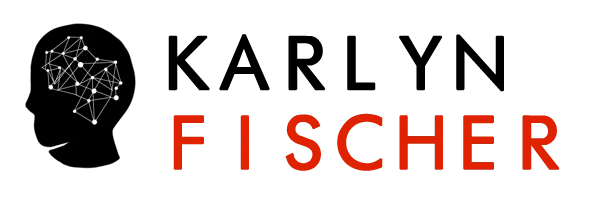Blog

Supercharge Your Study Sessions: Techniques for Enhancing Brain-Powered Learning
Looking to maximize your study sessions and enhance your learning abilities? Dive into the world of neuro-optimization and discover powerful techniques to revolutionize your approach to studying. In this blog post, we explore memory improvement, cognitive enhancement, and effective study methods, all aimed at optimizing your learning experience. Whether you're a student, a professional, or a lifelong learner, these neuro-optimization techniques can take your studying to the next level. Unleash your brain's potential, boost your memory retention, and sharpen your focus with these proven strategies. Get ready to supercharge your study sessions and achieve outstanding academic success with the power of neuro-optimization. Let's dive in and unlock your full learning potential!
Understanding Neuro-Optimization and Cognitive Abilities
To embark on our exploration of neuro-optimization and its profound impact on studying, it is crucial to grasp the fundamental concepts and principles underlying this transformative discipline. By understanding the connection between neuro-optimization and cognitive abilities, we can gain deeper insights into how this approach can revolutionize our learning experiences.
A. Definition and Explanation of Neuro-Optimization
Neuro-optimization can be defined as the systematic process of optimizing the brain's functioning and neural networks to enhance cognitive abilities and overall mental performance. It draws upon the latest findings in neuroscience, cognitive psychology, and related fields to develop techniques and strategies that unlock the untapped potential of the human brain. By optimizing the brain's structure and function, neuro-optimization enables individuals to achieve peak performance, accelerate learning, and overcome cognitive limitations.
B. Overview of Key Cognitive Abilities Relevant to Studying & Learning
In the realm of learning, various cognitive abilities play vital roles in acquiring, processing, and retaining information effectively. Some of the key cognitive abilities relevant to learning include:
1. Memory: The ability to encode, store, and retrieve information. Memory influences our capacity to learn new concepts, recall important details, and build a knowledge base.
2. Attention: The ability to focus and concentrate on relevant stimuli while filtering out distractions. Attention allows us to engage with learning materials, absorb information, and maintain concentration throughout the learning process.
3. Executive Functions: These higher-order cognitive processes include skills such as problem-solving, critical thinking, planning, organization, and decision-making. Executive functions facilitate complex learning tasks and enable us to navigate challenges effectively.
4. Creativity: The ability to think in innovative and original ways, fostering unique perspectives and novel insights. Creativity enhances learning by enabling us to generate new ideas, connect seemingly unrelated concepts, and approach subjects from fresh angles.
C. How Neuro-Optimization Optimizes and Enhances Cognitive Abilities
Neuro-optimization techniques target specific cognitive processes and neural pathways to optimize and enhance cognitive abilities. By engaging in these techniques, we can rewire our brains, strengthen neural connections, and improve the efficiency of information processing. Neuro-optimization encompasses various strategies that positively impact cognitive abilities, such as:
1. Neural Plasticity: Neuro-optimization leverages the brain's remarkable ability to adapt and reorganize itself through neuroplasticity. By engaging in targeted activities and exercises, we can promote the growth of new neural connections, enhance synaptic plasticity, and facilitate efficient information transfer.
2. Neurogenesis: Neuro-optimization techniques can stimulate the production of new neurons through a process known as neurogenesis. By promoting neurogenesis, we can enhance learning capacity, memory formation, and overall brain health.
3. Neurotransmitter Optimization: Neurotransmitters play a crucial role in information transmission and cognitive functioning. Neuro-optimization techniques can influence neurotransmitter levels and balance, promoting optimal cognitive performance and enhancing learning processes.
By understanding the principles of neuro-optimization and its impact on cognitive abilities, we can now delve into the transformative techniques that can maximize our learning potential. In the following sections, we will explore a range of neuro-optimization strategies and practical tips that empower us to enhance our cognitive abilities, optimize our learning experiences, and unlock new levels of intellectual growth.
Techniques for Optimizing Your Study Sessions through Neuro-Optimization
Having established a foundation of understanding in neuro-optimization and its impact on cognitive abilities, let us now delve into a collection of powerful techniques that can optimize our cognitive capabilities and revolutionize the learning process. These techniques draw upon the principles of neuro-optimization to enhance our learning experiences, promote effective information retention, and unleash our intellectual potential.
A. Mindful Studying
Mindfulness, rooted in ancient contemplative practices, has gained significant recognition for its transformative impact on various aspects of life, including learning. Mindful learning involves cultivating present-moment awareness and non-judgmental attention to the learning process. By engaging in mindful learning, we can:
Enhance Focus and Attention: Mindfulness techniques enable us to anchor our attention to the present moment, minimizing distractions and improving concentration during learning activities.
Improve Information Retention: Mindful learning promotes deep engagement with the material, facilitating better encoding of information into long-term memory.
Manage Stress and Enhance Well-being: Mindfulness reduces stress and fosters a positive mindset, creating a conducive environment for effective learning.
B. Brain-Training Exercises
Engaging in brain-training exercises is a powerful way to optimize cognitive abilities and improve learning outcomes. These exercises are designed to stimulate neural pathways, challenge the brain, and enhance various cognitive functions. Some effective brain-training exercises include:
Puzzles and Brainteasers: Solving puzzles, crosswords, Sudoku, and other challenging brainteasers can sharpen problem-solving skills, improve memory, and boost cognitive flexibility.
Memory Games: Engaging in memory games, such as card matching or the "Simon" game, enhances memory recall, concentration, and pattern recognition.
Learning a New Skill: Acquiring a new skill, whether it be playing a musical instrument, learning a foreign language, or mastering a craft, fosters neural plasticity and cognitive growth.
C. Sleep Optimization for Learning
Quality sleep plays a vital role in consolidating memories, enhancing cognitive performance, and optimizing learning outcomes. By prioritizing sleep and implementing strategies for optimal sleep hygiene, we can:
Improve Memory Consolidation: During sleep, the brain consolidates and integrates newly acquired information into long-term memory, improving retention and recall.
Enhance Problem-Solving Abilities: Sufficient sleep allows the brain to process complex information, facilitating creative problem-solving and critical-thinking skills.
Boost Cognitive Functioning: Well-rested individuals demonstrate improved attention, focus, and overall cognitive abilities, enabling more effective learning and knowledge acquisition.
D. Nutrition for Brain Health
Proper nutrition plays a crucial role in supporting brain health and optimizing cognitive function. By incorporating brain-healthy foods into our diet, we can:
Enhance Cognitive Performance: Foods rich in omega-3 fatty acids, antioxidants, and vitamins support brain health and enhance cognitive abilities such as memory and focus.
Promote Neuroplasticity: Certain nutrients, such as choline and B-vitamins, contribute to neuroplasticity, supporting the brain's ability to adapt and learn.
Maintain Stable Energy Levels: Consuming a balanced diet that includes complex carbohydrates, proteins, and healthy fats provides a steady source of energy for the brain, optimizing cognitive performance throughout the learning process.
E. Effective Study Techniques
Implementing effective study techniques is paramount to optimizing the learning process and maximizing knowledge retention. Some evidence-based study techniques to consider include:
Spaced Repetition: Distributing study sessions over time and revisiting information at spaced intervals enhances memory retention and retrieval.
Active Recall: Actively retrieving information from memory, such as through practice tests or summarizing key concepts, reinforces learning and strengthens memory traces.
Elaboration: Explaining and expanding upon concepts in your own words deepens understanding, improves retention, and facilitates the integration of new information with existing knowledge.
F. Multisensory Learning
Engaging multiple senses during the learning process can significantly enhance information processing and retention. By incorporating multisensory learning techniques, we can:
Visualize Concepts: Visual aids, mind maps, and diagrams help visualize complex ideas, making them easier to comprehend and remember.
Utilize Auditory Cues: Listening to educational podcasts, recordings, or participating in discussions can reinforce learning and improve retention through auditory engagement.
Kinesthetic Activities: Incorporating hands-on activities, experiments, or role-playing exercises can solidify understanding and make the learning experience more interactive and memorable.
G. Embracing a Growth Mindset
A growth mindset is a belief in the potential for growth and development. Embracing a growth mindset in the learning process allows us to:
Overcome Challenges: Viewing challenges as opportunities for growth rather than obstacles encourages perseverance and resilience in the face of difficulties.
Embrace Mistakes as Learning Opportunities: Embracing mistakes as valuable learning experiences promotes a positive attitude towards learning and fosters continuous improvement.
Foster Curiosity and Openness: Cultivating a sense of curiosity and embracing new ideas and perspectives fuels intellectual curiosity and stimulates a passion for lifelong learning.
By incorporating these neuro-optimization techniques into our learning routines, we can optimize our cognitive abilities, accelerate the acquisition of knowledge, and unleash our true learning potential. These techniques work synergistically to create an optimal learning environment, supporting effective information retention, and expanding our intellectual horizons. Experiment with different techniques and find the ones that resonate with you, tailoring them to your unique learning style and preferences. Unlock the transformative power of neuro-optimization and embark on a learning journey that propels you towards exceptional growth and intellectual achievement.
Implementing Neuro-Optimization Techniques for Enhanced Learning
Now that we have explored a wide range of neuro-optimization techniques for enhancing cognitive abilities and optimizing the learning process, it is essential to understand how to effectively implement these techniques into our daily lives. By integrating neuro-optimization practices into our learning routines, we can maximize the benefits and create an environment that fosters continuous growth and improvement. Let's explore some key considerations for implementing neuro-optimization techniques for enhanced learning.
A. Assessing Individual Learning Style
Each person has a unique learning style that influences how they best absorb and retain information. Understanding your preferred learning style can help tailor neuro-optimization techniques to suit your specific needs. Some common learning styles include visual, auditory, and kinesthetic. Consider the following:
Visual Learners: If you are a visual learner, incorporate techniques such as creating visual aids, using diagrams or flowcharts, and utilizing color-coded notes to enhance comprehension and retention.
Auditory Learners: If you are an auditory learner, focus on techniques such as listening to lectures or podcasts, participating in group discussions, and recording key concepts in your own voice to reinforce understanding and retention.
Kinesthetic Learners: If you are a kinesthetic learner, engage in hands-on activities, perform experiments, or use tactile materials to actively interact with the learning material.
Identifying your learning style will help you select and adapt neuro-optimization techniques that align with your preferred mode of learning, enhancing the effectiveness of your learning experiences.
B. Creating a Conducive Studying Environment
The learning environment significantly impacts our ability to focus, concentrate, and absorb information effectively. Consider the following strategies to create an environment that optimizes the learning process:
Minimize Distractions: Find a quiet and dedicated space for studying, free from distractions such as noise, electronic devices, or interruptions.
Organize Your Study Space: Keep your study area clean, clutter-free, and well-organized to create a conducive environment for concentration and focus.
Establish a Routine: Develop a consistent study routine that aligns with your natural energy levels and ensures regular and dedicated learning time.
Utilize Tools and Resources: Make use of technology, educational apps, timers, and organizational tools to enhance productivity and streamline your learning process.
By creating an environment that supports focus, minimizes distractions, and promotes organization, you can optimize your ability to engage with the learning material and enhance the neuro-optimization techniques you employ.
C. Seeking Professional Guidance
Working with a qualified neuro-optimization coach or expert can provide invaluable guidance and support on your learning journey. These professionals have specialized knowledge and experience in applying neuro-optimization techniques to enhance learning outcomes. Consider the following:
Research and Find Experts: Seek out reputable neuro-optimization professionals or coaches who specialize in optimizing cognitive abilities for learning purposes.
Personalized Guidance: Work with a professional who can provide personalized guidance, tailored strategies, and techniques based on your unique needs and goals.
Regular Feedback and Accountability: Regular sessions with a neuro-optimization coach can offer feedback, track progress, and provide accountability to ensure consistent growth and improvement.
Collaborating with a neuro-optimization expert can provide you with additional insights, resources, and personalized techniques to amplify the effectiveness of your learning journey.
Incorporating these neuro-optimization techniques and considerations into your learning routine will help you unleash your full cognitive potential, optimize the learning process, and achieve exceptional outcomes. Experiment with different techniques, adapt them to your learning style, and remain open to continuous improvement. Embrace the transformative power of neuro-optimization and embark on a learning journey that propels you toward intellectual excellence and lifelong growth.
Remember, the journey of learning is unique for each individual, and it requires dedication, perseverance, and an open mind. By embracing neuro-optimization, you are unlocking the extraordinary capabilities of your brain and embracing a path of continuous learning, development, and self-discovery. Embrace the potential within you, seize the opportunities to optimize your cognitive abilities, and embark on a fulfilling journey of enhanced learning and personal growth.
Unleashing the Power of Neuro-Optimization for Enhanced Studying
Congratulations! You have now explored the incredible world of neuro-optimization and its profound impact on maximizing cognitive abilities and revolutionizing the learning process. By incorporating the transformative techniques and strategies we've discussed, you are well-equipped to embark on a journey of enhanced learning, intellectual growth, and continuous improvement.
Neuro-optimization provides a gateway to unlocking the untapped potential of your brain. Through mindful learning, brain-training exercises, optimizing sleep, nutrition for brain health, effective study techniques, multisensory learning, and embracing a growth mindset, you can harness the power of your cognitive abilities to absorb, retain, and apply knowledge like never before.
Remember, implementing these neuro-optimization techniques requires commitment, consistency, and adaptability. Embrace experimentation, explore what works best for you, and fine-tune your approach along the way. The learning journey is a dynamic process, and by integrating neuro-optimization into your routine, you are embarking on an exciting path of discovery and growth.
As you apply these techniques, you may encounter challenges and setbacks. Embrace them as opportunities for learning and growth. Cultivate resilience, maintain a positive mindset, and persevere in your pursuit of knowledge. By doing so, you will not only enhance your learning experiences but also develop valuable life skills that extend far beyond the realm of academia.
Furthermore, remember that neuro-optimization is not a one-size-fits-all approach. Each individual is unique, and what works for one person may not work for another. Take the time to understand your learning style, adapt the techniques to suit your needs, and seek guidance from neuro-optimization professionals when needed. Personalization and self-awareness are key ingredients in maximizing the benefits of neuro-optimization for your learning journey.
So, embrace the power of neuro-optimization. Let it guide you on a transformative path of intellectual growth, enhanced cognitive abilities, and lifelong learning. Unleash the potential within your brain, and embrace the joy and fulfillment that come from expanding your knowledge, skills, and understanding of the world.
Now, it's time to take action. Incorporate these neuro-optimization techniques into your learning routine, and witness the remarkable results unfold before you. Embrace the journey, celebrate every milestone, and never stop exploring the infinite possibilities that neuro-optimization offers for your enhanced learning experience.
Remember, your mind is a boundless well of potential. With neuro-optimization, you hold the key to unlocking its extraordinary capabilities. Embrace the journey, fuel your passion for learning, and let your cognitive abilities soar to new heights.





